Strategy and Pricing for Resolving COVID-19 Insurance Claims
The Situation: As businesses continue to lose revenue due to COVID-19 closures, the insurance industry has taken a no-pay approach to Business Interruption, Civil Authority, and related insurance claims. In most cases, the denials are based on the superficial argument that “coronavirus does not equal property damage.” Many policyholders, though, can make strong arguments for coverage, depending on the nature of their losses, the terms of their policy, the wording of the applicable closure orders, and state insurance law, which varies widely among the states. Approximately 500 lawsuits have been filed by policyholders in 34 states advancing these arguments. To date there have been two preliminary rulings, one favorable and one unfavorable, and more rulings are expected in the coming months.
While 500 lawsuits may sound like a high number, when considered in context, that number is extremely low. Countless businesses across the country have lost revenue due to COVID-19, and insurers are denying claims across the board. So why have more businesses not filed lawsuits? The main reasons are lack of cash flow, and uncertainty surrounding the law. The insurance industry is betting that most insureds will not file lawsuits with unpredictable results during an economic downturn, and so far, the insurers are winning that bet.
A surprising number of the lawsuits filed to date are class actions seeking to resolve the claims of all policyholders nationwide against certain insurer(s). Class actions, though, are not a promising solution to the dilemma facing policyholders. These suits are unlikely to be certified to proceed on a class basis, and any policyholder relying upon them as a substitute for their own efforts will be left with nothing if class certification is denied. And, if a class is certified, any class settlement would likely be heavily discounted, and then would be cut further by class counsel fees paid to multiple law firms.
But challenges to pursuing litigation in the short term are not reason to abandon a valid claim, nor should a business risk harming or losing its claim by inattention to details. Most Business Interruption insurance policies impose a series of duties on the policyholder, such as the requirement to file a sworn proof of loss within 90 days of loss. Furthermore, policyholders with claims against insurers named in class actions will run into additional risks and traps if they fail to track the progress of those cases, and then there are negative rulings.
The Solution: Our Firm is offering a “strategic wait and see” approach, which will allow businesses of any size to make informed decisions on when, where, and how to pursue their Business Interruption claim, with advice from experienced legal counsel, after there is precedent to evaluate. We estimate that in 3-5 months, a body of law will develop indicating whether COVID-19 Business Interruption claims are likely to be successful, and if so, which courts and which arguments offer the best chances of success.
Upon signing a mutually acceptable retainer agreement, for a flat fee, our team will provide the following services:
- Review your policy and related materials, and provide a written assessment of your claim, including a choice of law analysis.
- Ensure compliance with all policy requirements, so that no rights are waived. If your insurer has not yet been placed on notice, we will assist with that process.
- Communicate with the insurer on your behalf.
- Report regularly on developments in pending cases and explain how they impact your claim.
- Track closely any class action suit(s) against your insurer, and we will advise you on whether, when, and how to opt out, and file opt out papers on your behalf if you so choose.
- Track and report on legislative developments affecting your claim.
- Most importantly, if the events described above confirm that your claim has merit, we will recommend the best strategy and fee structure to pursue the claim, consistent with your budget. We are open to hourly billing, contingency fee, or a hybrid of those structures.
The Firm’s flat fee to perform the initial work described above is tiered based on the size of the claim: $17,500 for claims of $1 million or less; $25,500 for claims of $1 million to $5 million; and $34,500 for claims over $5 million. If the policy contains an exclusion for “Loss Due to Virus or Bacteria — ISO Form CP 01 40 07 06” or similar exclusion, the Firm will perform these same services for 50% of the prices stated above.
The principal of Milone Law Firm, Richard D. Milone, has 29 years’ experience representing policyholders against their insurers, including five years as a partner at Jones Day, and is ranked as a top policyholder attorney by Chambers and Partners. Mr. Milone has helped clients secure more than $1 billion in disputed insurance proceeds. More information on the Firm is available here, including articles on insurance for COVID-19 losses.
More from the Milone Law Firm Blog
Minimizing Litigation Costs by Maximizing the Value of Insurance Coverage
An Article highlighting the key points that in-house counsel should consider to maximize the value of their company’s insurance coverage.
Chambers Practice Area Overview – District of Columbia: Insurance: Policyholder
For insurance matters of national importance, clients often hire Washington, D.C. counsel as insurance law across the USA is heavily influenced by them.
Why Every Company Should Have an Insurance Coverage Lawyer Review its D&O Policy as Part of its Annual Renewal
Director’s & Officer’s (D&O) insurance policies are contracts potentially worth tens of millions of dollars, but during their annual renewal, their wording frequently is given little or no review.

